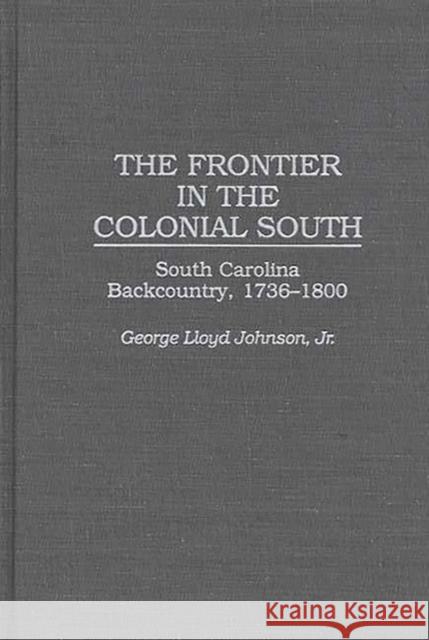The Frontier in the Colonial South: South Carolina Backcountry, 1736-1800 » książka
The Frontier in the Colonial South: South Carolina Backcountry, 1736-1800
ISBN-13: 9780313301797 / Angielski / Twarda / 1997 / 224 str.
The Frontier in the Colonial South: South Carolina Backcountry, 1736-1800
ISBN-13: 9780313301797 / Angielski / Twarda / 1997 / 224 str.
(netto: 341,60 VAT: 5%)
Najniższa cena z 30 dni: 355,74
ok. 30 dni roboczych
Bez gwarancji dostawy przed świętami
Darmowa dostawa!
Using the New Social History method and examining nearly every document produced over the years covered, this study examines the growth of communities in the Upper Pee Dee region of the South Carolina backcountry in the 18th century. The study considers the emergence of a landed elite, slavery, and a mobile population, plus the disestablishment of the Anglican Church. Inhabitants of the Cheraws District had access to a river that flowed to the coast, allowing them to transport their agricultural produce to the market at Georgetown. This ease of transportation enabled the district to become more developed than other regions of the South Carolina backcountry. In the 1770s, local inhabitants built a courthouse and a jail, and members of the rising planter class formed St. David's Society to educate parish youth. Records from two of the oldest Baptist churches in the South provide clues to communal cohesion and ethnicity. These accounts, combined with land and probate records, provide information concerning settlement, wealth, and slaveholding patterns in the region.











